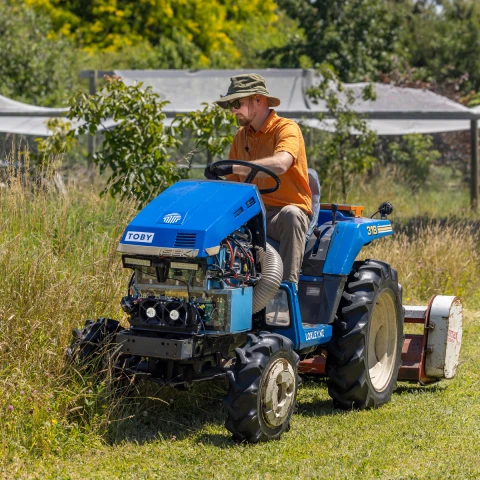
Electrifying a tractor doesn’t just make it cleaner and cheaper to run. It also makes it exponentially more useful, according to Canterbury-based innovator Duncan Aitken.
Duncan Aitken has always had a knack for mechanical engineering. Taking things apart, figuring out how they work and finding ways to make them even better.
He reckons there’s a natural human curiosity at play which means people are constantly trying to create new tools to improve the world around us.
“We're pretty ingenious at coming up with ways to lever our cognitive ability to manifest in the real world. Take large diggers for example and think about the manual labour required to do the same amount of work in the same amount of time.
“That part of engineering really appeals to me. Coming up with solutions to existing problems, as well as finding better ways of doing things", he says.
Duncan also has a deep appreciation for the land he lives on. After migrating to Aotearoa from Ireland a decade ago, he now lives on a rural property south of Christchurch. While most sections in the area are bare paddocks used for running livestock, he and his partner took a very different approach by deciding to plant a food forest.
“We wanted to do something good for the local wildlife as much as supporting biodiversity and food resilience.
“Instead of a traditional orchard which is mostly monoculture, you’re building something multi-layered and self-regenerating. Once you get a food forest established and you get the right balance, it just goes nuts and it does its own thing", he says.
Combing sustainable farming with carbon neutral machinery
Duncan’s interests in engineering and sustainable farming inevitably led him to question the conventional machinery needed for a project of this scale.
“It became clear that I needed to do some mowing to maintain walking paths and things. So I bought a ride-on mower. The experience, quite frankly, was terrible. It was loud, it was smelly. It cost a lot, just in terms of petrol. It was just not a good experience.”
With no suitable electric alternatives available at the time, Duncan did what any good engineer would do, and converted a petrol mower himself to run off a battery. After six years, he says it’s still going strong.
But Duncan didn’t stop there. With plans to do some tilling and his food forest beginning to grow, he looked around for a small tractor that could run off electricity instead of fossil fuels. After finding nothing on the market, he purchased a small diesel tractor (that had “thrown a leg out of bed”) and set about to electrify it himself.
“I took out the broken diesel engine and put in a motor, controller and lithium batteries. I used an old forklift motor for the hydraulics. That was it, the tractor’s now been working for almost five years", he says.
Given that agriculture remains one of the world’s biggest greenhouse gas contributors, Duncan’s proof-of-concept tractor, which he named ‘Bleuie’, could point the way to significantly reducing on-farm emissions. He estimates that a 60-horsepower diesel tractor emits around 12 tons of carbon per year, and will typically be used for just a fraction of its 15-year lifespan.
Duncan acknowledges that fossil fuels have allowed humans to make tremendous progress over the last century but is adamant the time has come to transition to clean energy.
“Fossil fuels have enabled us to live in the most prosperous and healthiest times we've known. But they've got a very long tail, and a very sharp sting to that tail which is starting to manifest now.
“So, we're in a sweet spot where we have all of this infrastructure as well as the ability to transition from fossil fuels. And we've got a very short time window in order to do that", he says.

Much more than just an electric tractor
With Bleuie up and running on the farm, Duncan soon realised his electric tractor had more uses than he’d originally thought.
“All of a sudden it occurred to me that I had this electrical mobile power bank, basically. So if I needed to use power tools far from a power supply, I could just drive the tractor out, plug in the welder or whatever I was using, and I was good to go.”
But unlike standard power banks, an electric tractor features a much larger battery capable of powering more than just power tools. Duncan put this to the test one evening when his solar panels hadn’t generated enough electricity for him to power his oven.
“I was able to use the battery in the tractor to feedback into the house network to power the oven to cook dinner. That was the big ‘aha’ moment", he says.
From here, the potential of Duncan’s innovation becomes clear. In essence, it enables a high power bi-directional flow of energy, meaning that while it’s not being used on the farm, it could feed energy back into the national grid when demand is high.
“At the moment, tractors are used for one purpose. But with a high power bi-directional flow of energy, why not use that to supplement power delivery into the grid and have a more distributed network?”
“I can imagine this would be valuable in cities. Councils use tractors to maintain parks, berms and such in the summer. But in the winter when they’re used less frequently and demand for electricity is peaking, you could park up the tractors at the substations where you get those peak load events, then all of a sudden, it changes the dynamic and how and when peak loading occurs", Duncan says.
While there are already tractors on the market with onboard power delivery, Duncan says they are restricted to a couple of kilowatts, which limits their broader utility.
“What we’re proposing is multiples of 22 kilowatts. That gives you up to 100 kilowatts of power delivery. If you had a fleet of 10 of those tractors, that's a megawatt which is enough to offset around 300 homes at peak load times”, he says.
Taking carbon neutral machinery mainstream
Recognising the value his innovation could have not only on farms but also in urban settings, Duncan founded Loxley Innovation and is now busy adapting his proof-of-concept tractor into an emissions-free, versatile electric traction platform called Toby.
“The whole notion of the Toby platform is that it can be used as a lot more than just a tractor. Depending on your needs, you could put a forklift on the base platform, or a scissor lift. Or you could add additional batteries and have a high-capacity mobile generator.”
Duncan says the response he’s had from farmers in Aotearoa has been encouraging. While some harbour doubts about the ability to deliver enough power, he believes this is the same concern people have had with EVs - an issue that is being put to rest as technology rapidly improves.
“Another concern is runtime, which is definitely a challenge. So we’re looking at a fairly decent sized battery pack in order to address that.
“We're currently targeting low acreage, high-value crops like vineyards, orchards, nut farms, and market gardeners. So if you need to split up your 10-hour runtime into two five hour chunks and then do a quick recharge in the middle, it's a lot more feasible if you're close to base while you’re working", he says.
Looking ahead, Duncan has plans to take his innovation global. He sees Toby offering particular value for countries where grid connection can be flakey due to adverse weather events.
“So in the event of a hurricane or a monsoon where the grid goes down, you have this platform to store and deliver power where it’s needed", he says.
Loxley Innovation is also working on another product called Chronos, which will control the flow of power in and out of an ICP. He and his business partner have had support from two business accelerators - Sprout Agritech and another run by and lines company Orion NZ.
“They’ve been very progressive, and they realise that disruption is coming to the energy system, not just here but all over the world.
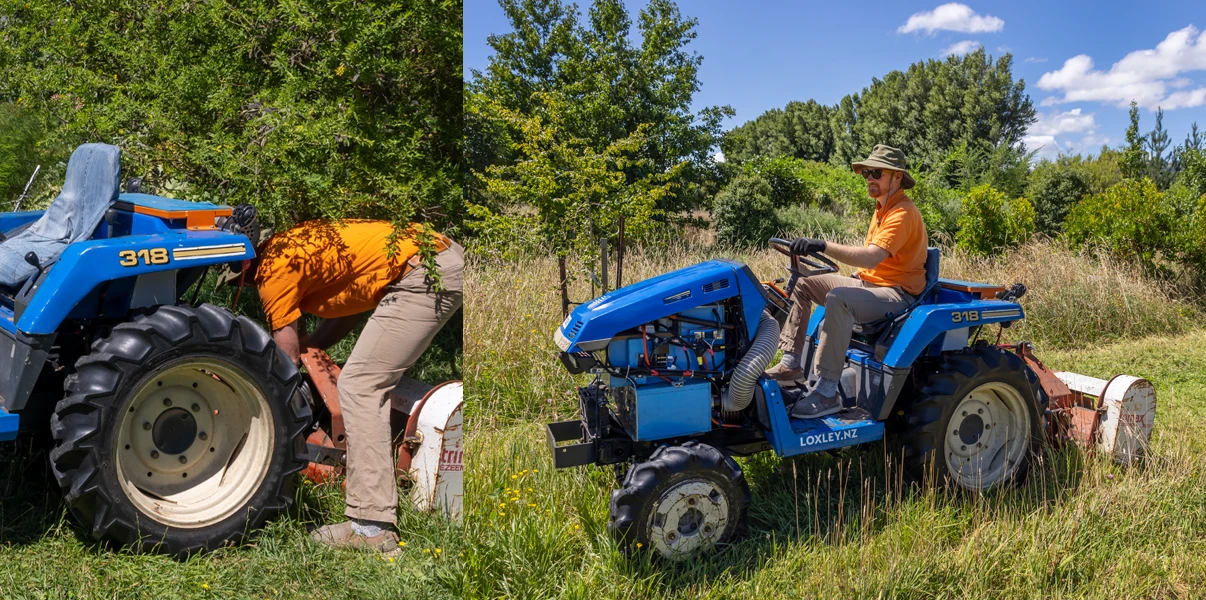
See how Kiwis are leading the way to zero-carbon future
Learn how New Zealanders from all walks of life leading the way to a zero-carbon Aotearoa. Each of them has overcome the challenge of transitioning to cleaner energy, proving that as a country we have the ideas, the technology and the ambition to make this happen.

Good vibes make good business
Raglan Food Co leads by example when it comes to looking after their community and the environment.
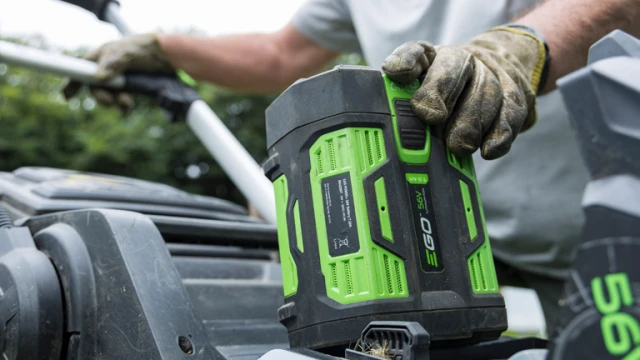
The electric lawncare revolution
The days of having your peaceful weekends ruined by the sound of lawn mowers and leaf blowers will soon be over.
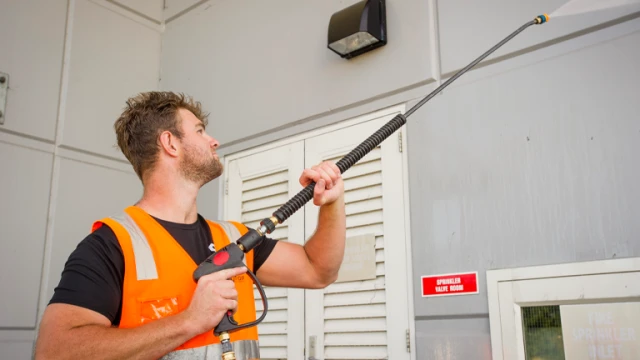
Commercial cleaning goes green
Every day, hundreds of commercial water blasters are pressed into service around New Zealand. They keep our built environments clean but there’s a catch. They’re surprisingly bad for the environment.
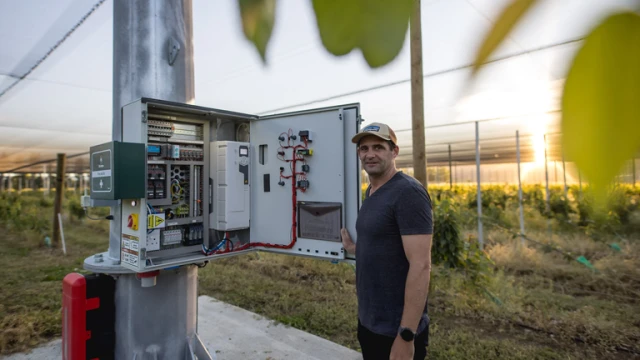
How to electrify an orchard
How a small farm near Wānaka changed one couple’s lives - and kickstarted a global movement to grow food completely free of fossil fuels.
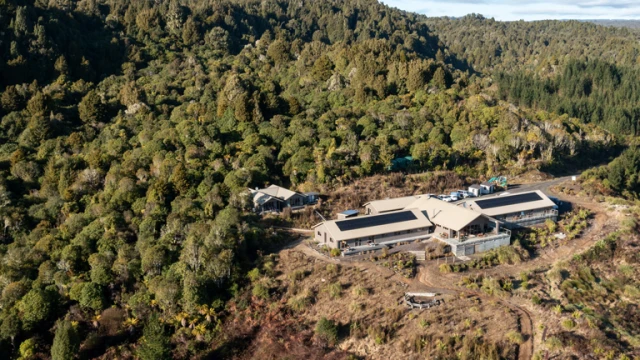
An eco lodge worthy of its name
In the Central North Island, a unique lodge is proving it's possible to run an eco friendly tourism business in Aotearoa without burning through fossil fuels.